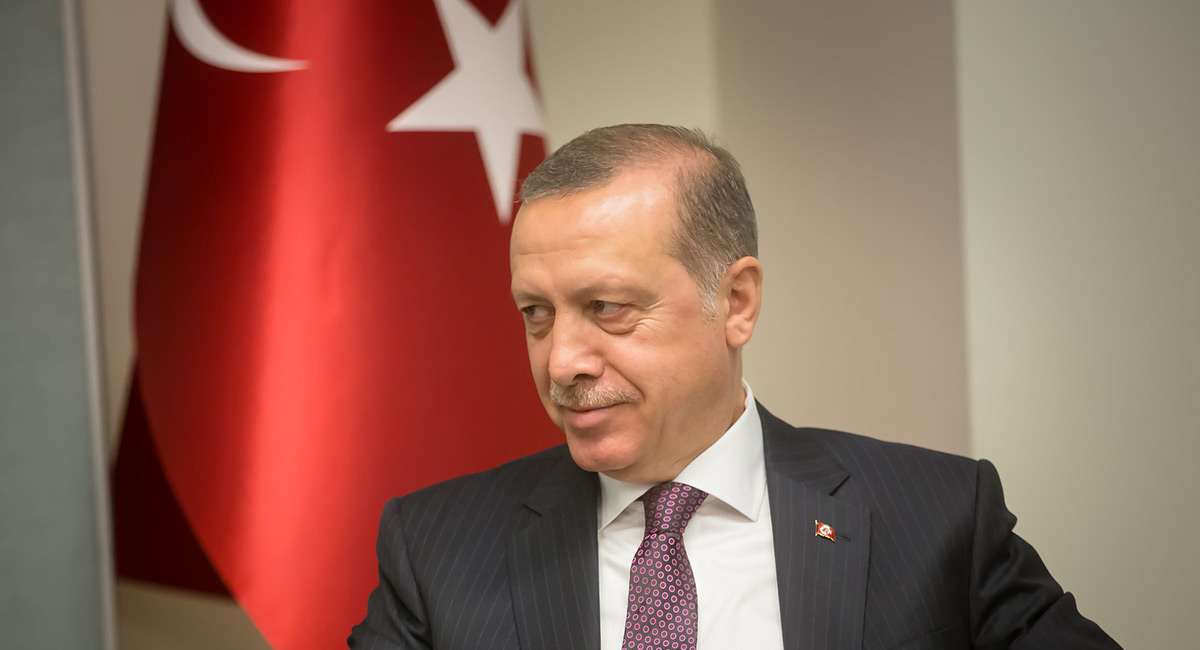Like countless others, I was forced to change my travel plans this summer. I was supposed to meet up in Italy with someone from a country whose residents currently aren’t allowed to travel to the European Union, where I’ve been confined for months due to Covid-19 related restrictions. So we had to change our destination to a country outside the EU. We ended up in Turkey. It was a real eye-opener.
Unlike the EU, Turkey’s president, Recep Tayyip Erdogan, has opened his country’s borders to visitors (with conditions and, due to the collapse of global travel, at ridiculously low prices) who otherwise might have gone to Europe.
Erdogan, along with China’s Xi Jinping and Russia’s Vladimir Putin, is one of the leading authoritarians of the 21st century. North Korea’s buffoonish strongman, Kim Jong-un, doesn’t fall in the same category because there is no geopolitical strategy behind his nuclear bomb—it’s merely a tool of internal politics and personal ego. And the tropical autocrats that rule Cuba and Venezuela are mere caricatures of the classic Latin American dictator, a species famously described by Ramon del Valle-Inclán in his eponymous 1926 novel, “Tirano Banderas.”
Erdogan is different. Erdogan wants to resurrect the Ottoman Empire, as Putin longs for the rebirth of Tsarist Russia, and Xi longs to control the South China Sea, while making his presence felt everywhere else.
The Turkish leader has a powerful weapon: Islam. Non-Shiite (Sunni) Islam lacks a leader. Saudi Arabia’s king, Salman bin Abdulaziz (or his heir), should in principle be playing that role, but Saudi Arabia’s dependence on the United States and the ruling elite’s hedonism curb that temptation.
Erdogan wants to fill that void. So, he has been re-imposing Islam on his once-relatively tolerant and secular country at phenomenal speed.
This would not have been possible were not for the fact that he thwarted an attempted coup in 2016, which some believe he staged, and used that as an excuse for purging critics and opponents from the public arena and military. Press freedom, for example, is under serious threat.
Though Erdogan enjoys the support of only about half of the population, especially in the rural areas, and Turkey’s strong Kemalist—that is to say secular—heritage, the president’s word has become the law of the land.
I may have been one of the last people to visit Istanbul’s great architectural monument Hagia Sophia—a Christian church for a thousand years before becoming a Muslim mosque under the Ottomans and later a museum after the birth of the modern Turkish republic—before Erdogan converted into a mosque again.
When I returned to the area a few days later it was swarming with security forces: there to make clear that Hagia Sofia’s Islamification was a fait accompli and, not by coincidence, of course, to mark the national holiday commemorating the failure of the 2016 coup.
Although Turkey, like China and Russia, understands the importance of capitalism, it ignores the other main component of economic development: a legal system that protects property and other rights. Not surprisingly, after several years of impressive growth arising from significant foreign investment, Turkey’s economy has slowed down significantly in recent years.
Without a vibrant, growing economy, Erdogan’s grand plan to lead the three areas of former Ottoman power—Western Asia, Southeastern Europe and North Africa—into the future will be impossible to carry out.
This won’t stop him from creating lots of problems, however: in Libya, Syria and elsewhere.
Turkey’s NATO membership gives him an advantage: He understands full well that NATO’s predominant liberal democracies can’t expel him because it would be much more dangerous to have him outside the Alliance than inside. He is also acutely aware that European leaders fear that confronting him too forcefully might induce him to unleash a torrent of Syrian refugees currently housed in Turkey.
The new Sultan of Turkey continues, therefore, to stir trouble everywhere, including his constant meddling in the Mediterranean, particularly in Cyprus’s waters, where he has illegally begun to drill in search of oil.
Turkey’s strongman has fully earned a place besides Xi Jinping and Vladimir Putin as a symbol of imperialist ambition today.













